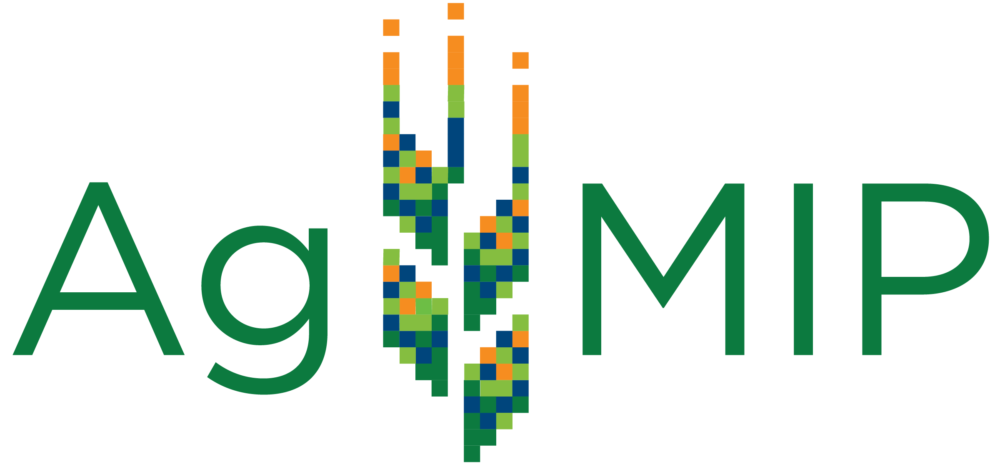People
<h3><span style="color: #2b5b32;">Executive Committee (2018-2020)</span></h3><!-- [et_pb_line_break_holder] --><!-- [et_pb_line_break_holder] --><div style="width: 30%; padding: 1px 10px 0px 0px; float: left;"><img class="alignnone wp-image-10153" src="http://www.agmip.org/wp-content/uploads/2017/10/1.png" alt="" width="210" height="210" /><i> </i></div><!-- [et_pb_line_break_holder] --><h5 style="width: 60%; padding: 1px 10px 0 0; float: right;"><b>John Antle</b></h5><!-- [et_pb_line_break_holder] --><!-- [et_pb_line_break_holder] --><div style="width: 60%; padding: 1px 10px 0 0; float: right;"><em>Oregon State University, USA</em><!-- [et_pb_line_break_holder] -->Dr. John Antle is a Professor in the Department of Applied Economics at Oregon State University and a University Fellow at Resources for the Future. His AgMIP research contributions focus on the sustainability of agricultural systems in industrialized and developing countries, including climate change impacts, adaptation and mitigation in agriculture; assessment of environmental and social impacts of agricultural technologies; and geologic carbon sequestration. He is a Fellow and past President of the American Agricultural Economics Association and serves as Co-Leader of the AgMIP Regional Economics team.<!-- [et_pb_line_break_holder] --> <!-- [et_pb_line_break_holder] --> <!-- [et_pb_line_break_holder] --> <!-- [et_pb_line_break_holder] --></div><!-- [et_pb_line_break_holder] --><!-- [et_pb_line_break_holder] --><div style="clear: both;"></div><!-- [et_pb_line_break_holder] --> <!-- [et_pb_line_break_holder] --><!-- [et_pb_line_break_holder] --><p style="width: 30%; padding: 1px 10px 0px 0px; float: left;"><img class="alignnone wp-image-10154" src="http://www.agmip.org/wp-content/uploads/2017/10/2-240x300.jpg" alt="" width="210" height="263" /></p><!-- [et_pb_line_break_holder] --><!-- [et_pb_line_break_holder] --><h5 style="width: 60%; padding: 1px 10px 0 0; float: right;"><b>Senthold Asseng</b></h5><!-- [et_pb_line_break_holder] --><!-- [et_pb_line_break_holder] --><div style="width: 60%; padding: 1px 10px 0 0; float: right;"><em>Oregon State University, USA</em><!-- [et_pb_line_break_holder] -->Dr. Senthold Asseng is a Professor in the Agricultural & Biological Engineering Department at University of Florida. He has contributed to AgMIP in many capacities. Most notably, as a Co-Leader of the AgMIP-Wheat team, Dr. Asseng has been at the forefront of both US-based and internationally-organized research projects and his work has helped set the standard for AgMIP crop model intercomparisons. Additionally, Dr. Asseng has developed and linked AgMIP networks both regionally and globally, and his commitment to expanding the AgMIP network for the betterment of research is extremely valuable.</div><!-- [et_pb_line_break_holder] --><!-- [et_pb_line_break_holder] --><div style="clear: both;"></div><!-- [et_pb_line_break_holder] --><!-- [et_pb_line_break_holder] --><p style="width: 30%; padding: 1px 10px 0px 0px; float: left;"><img class="alignnone wp-image-10155" src="http://www.agmip.org/wp-content/uploads/2017/10/3-234x300.jpg" alt="" width="210" height="269" /></p><!-- [et_pb_line_break_holder] --><!-- [et_pb_line_break_holder] --><h5 style="width: 60%; padding: 1px 10px 0 0; float: right;"><b>Jerry Hatfield</b></h5><!-- [et_pb_line_break_holder] --><!-- [et_pb_line_break_holder] --><div style="width: 60%; padding: 1px 10px 0 0; float: right;"><em>US Department of Agriculture – Agricultural Research Service, USA</em><!-- [et_pb_line_break_holder] -->Dr. Jerry L. Hatfield is currently the Laboratory Director of the USDA-ARS National Laboratory for Agriculture and the Environment. His personal research focuses on quantifying the interactions among the components of the soil-plant-atmosphere system to quantify resilience of cropping systems to climate change. He is a Fellow of the American Society of Agronomy, Crop Science Society of America, and Soil Science Society of America, and past President of the American Society of Agronomy. Dr. Hatfield serves as Co-Leader of the AgMIP Crop-Water-ET Initiative.</div><!-- [et_pb_line_break_holder] --><!-- [et_pb_line_break_holder] --><div style="clear: both;"></div><!-- [et_pb_line_break_holder] --><!-- [et_pb_line_break_holder] --><p style="width: 30%; padding: 1px 10px 0px 0px; float: left;"><img class="alignnone wp-image-10156" src="http://www.agmip.org/wp-content/uploads/2017/10/4-200x300.jpg" alt="" width="200" height="300" /></p><!-- [et_pb_line_break_holder] --><!-- [et_pb_line_break_holder] --><h5 style="width: 60%; padding: 1px 10px 0 0; float: right;"><b>Hermann Lotze-Campen</b></h5><!-- [et_pb_line_break_holder] --><!-- [et_pb_line_break_holder] --><div style="width: 60%; padding: 1px 10px 0 0; float: right;"><em>Potsdam Institute for Climate Impacts Research (PIK) and Humboldt-Universität zu Berlin (HU), Germany</em><!-- [et_pb_line_break_holder] -->Dr. Hermann Lotze-Campen is Chair of Research Domain Climate Impacts and Vulnerabilities at PIK and Professor of Sustainable Land Use and Climate Change at HU Berlin. He is Co-Leader of the AgMIP Global Economics Team and is committed to linking global analysis with Regional Integrated Assessments. Moreover, he is also committed to connecting AgMIP work beyond AgMIP communities. He is a member of the Inter-Sectoral Impact Model Intercomparison Project (ISIMIP), coordinated in his Research Domain at PIK, and is eager to strengthen connections between initiatives.</div><!-- [et_pb_line_break_holder] --><!-- [et_pb_line_break_holder] --><div style="clear: both;"></div><!-- [et_pb_line_break_holder] --><!-- [et_pb_line_break_holder] --><p style="width: 30%; padding: 1px 10px 0px 0px; float: left;"><img class="alignnone wp-image-10157" src="http://www.agmip.org/wp-content/uploads/2017/10/5.jpg" alt="" width="210" height="248" /></p><!-- [et_pb_line_break_holder] --><!-- [et_pb_line_break_holder] --><h5 style="width: 60%; padding: 1px 10px 0 0; float: right;"><b>Cynthia Rosenzweig</b></h5><!-- [et_pb_line_break_holder] --><!-- [et_pb_line_break_holder] --><div style="width: 60%; padding: 1px 10px 0 0; float: right;"><em>NASA-Goddard Institute for Space Studies (GISS) and Columbia University, USA</em><!-- [et_pb_line_break_holder] -->Cynthia Rosenzweig is Senior Research Scientist at NASA GISS where she heads the Climate Impacts Group. She is also Adjunct Senior Research Scientist at the Columbia University Earth Institute and a Professor in the Department of Environmental Science at Barnard College. She is currently spearheading the AgMIP Coordinated Global and Regional Assessment on the effects of climate change on the food system, including nutrition. Dr. Rosenzweig is also Coordinating Lead Author of the Food Security Chapter for the IPCC Special Report on Climate Change and Land.</div><!-- [et_pb_line_break_holder] --><!-- [et_pb_line_break_holder] --><div style="clear: both;"></div><!-- [et_pb_line_break_holder] --><!-- [et_pb_line_break_holder] --><p style="width: 30%; padding: 1px 10px 0px 0px; float: left;"><img class="alignnone wp-image-10158" src="http://www.agmip.org/wp-content/uploads/2017/10/6-233x300.jpg" alt="" width="210" height="270" /></p><!-- [et_pb_line_break_holder] --><!-- [et_pb_line_break_holder] --><h5 style="width: 60%; padding: 1px 10px 0 0; float: right;"><b>Anthony Whitbread</b></h5><!-- [et_pb_line_break_holder] --><!-- [et_pb_line_break_holder] --><div style="width: 60%; padding: 1px 10px 0 0; float: right;"><em>International Crops Research Institute for the Semi-Arid Tropics (ICRISAT), India</em><!-- [et_pb_line_break_holder] -->Dr. Anthony Whitbread is Research Program Director of the Innovations Systems in the Drylands, ICRISAT, and a Professor and former Chair of the Crop Production Systems in the Tropics, Georg-August-Universität Göttingen. He has been a key partner with AgMIP in its Regional Research Team work to develop and utilize Regional Integrated Assessments and has made strong contributions to agricultural modeling by promoting a diverse range of modeling frameworks (including livestock), tools, and scales to meet the stakeholders’ needs. His work throughout the CGIAR centers has connected modelers, researchers, and stakeholders across the globe.</div><!-- [et_pb_line_break_holder] --><!-- [et_pb_line_break_holder] --><div style="clear: both;"></div><!-- [et_pb_line_break_holder] --><!-- [et_pb_line_break_holder] -->
